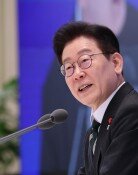No More Individual Ranks for Grade 1~3 Public Servants
No More Individual Ranks for Grade 1~3 Public Servants
Posted November. 18, 2004 23:00,
Starting in 2006, a Senior Civil Service composed of some 1,500 civil servants of grades 3 or higher, including secretary-generals and director-generals of central government agencies, will be inaugurated. Civil servants who are included in the Senior Civil Service will no longer have individual ranks, and even officials in the same job class will receive differentiated remuneration according to assigned work and results produced.
The Civil Service Commission (CSC) released a government bill outlining the above on November 18. A hearing on the issue will take place on November 19, after which the CSC will cull opinions from various sectors and announce a finalized bill during the first half of 2005.
According to the bill, public servants in the upper 1,280 postscomprising general civil servants such as director-generals and secretary-generals, certain special positions including members of the Foreign Service, and those in excepted or contracted servicewill be appointed from among the constituents of the Senior Civil Service from 2006 onward.
As for appointments in each government agency, 20 percent will be made from outside civilian personnel, 30 percent through internal job postings, and 50 percent at the agency heads personal discretion. The ratio of appointments will be finalized through the hearing and other pertinent processes.
The CSC stated, Civil servants in the relevant 1,280 positions will all be enlisted in the Senior Civil Service in 2006, and added, If we include officials of grade 3 or above who are currently in training or on external assignments, we expect to have about 1,500 members altogether in the Senior Civil Service.
The bill also states that, after the launching of the Senior Civil Service in 2006, department chiefs and civilians who wish to join the Service must pass an eligibility evaluation and a job posting process. Even those already in the Service will go through appointment screenings every four or five years.
Members of the Senior Civil Service will be subject to a substantially strengthened achievement management system. Each civil servant will sign a contract based on on-the-job achievement with the head of his or her agency, and the results of achievement evaluations will be reflected in personnel decisions.
The CSC revealed that it is considering plans to terminate public servants who receive the lowest evaluation grade on two or three consecutive occasions or those who have not received an assignment for a total of two years.
At the same time, salaries will differ according to the importance, difficulty, and achievement level of each assignment, so that even officials with identical titles such as assistant deputy ministers or director-generals of planning & management will receive differentiated pay depending on the agency or division in which they are appointed.
A portion of the special service such as the police, the public prosecutors office, the education system, and the fire department, as well as officials in local governments and in constitutional agencies besides the administration, have been excluded from the Senior Civil Service. However, those in special posts who wish to join the Senior Civil Service will be allowed to apply for membership.
Hyun-Doo Lee ruchi@donga.com







